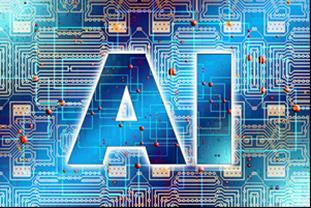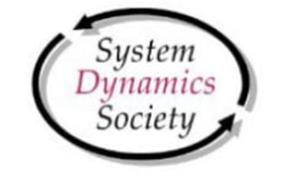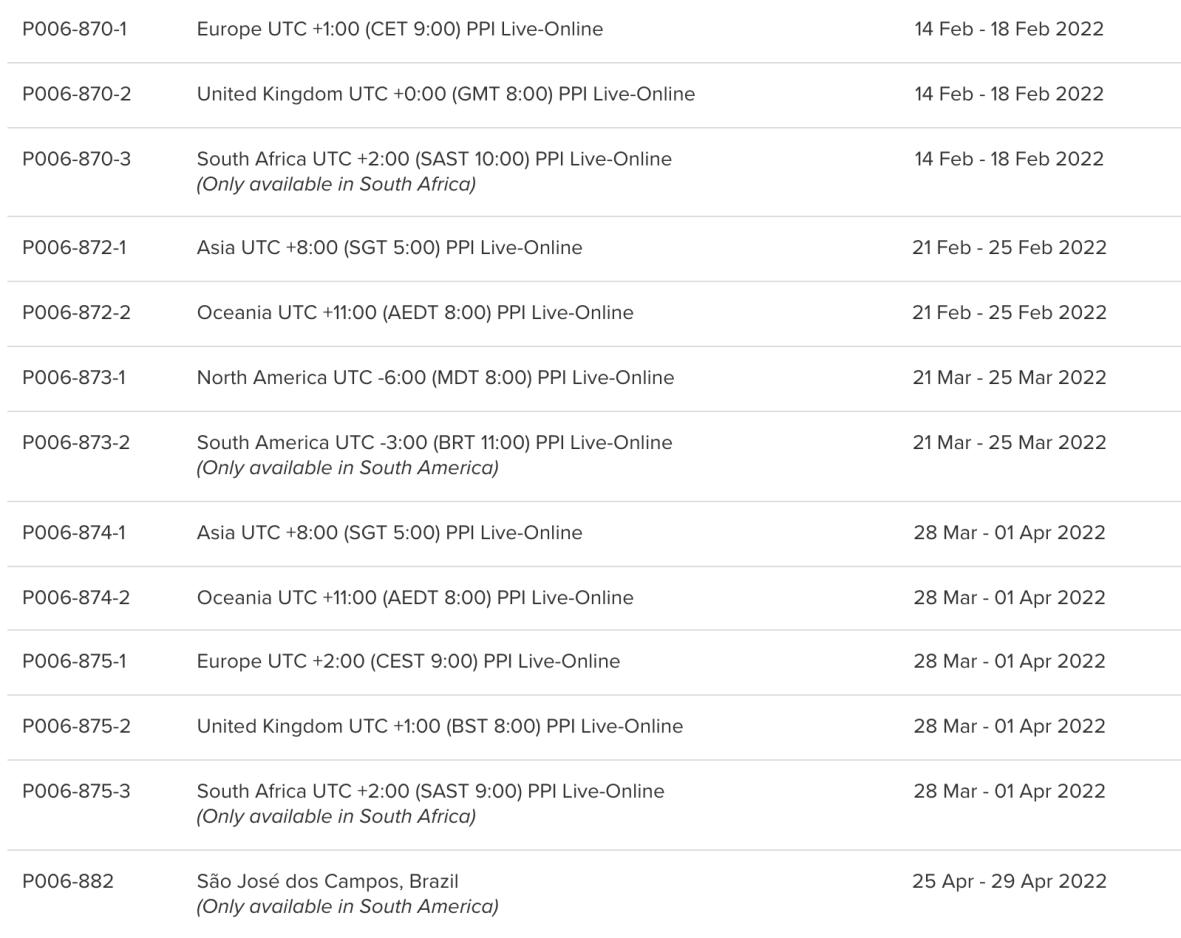
13 minute read
CONFERENCES, MEETINGS & WEBINARS
CONFERENCES, MEETINGS & WEBINARSEvents of relevance to systems engineering
Events of relevance to systems engineering
INCOSE San Diego Chapter: Managing Architectural Complexity Presentations
On 17 November, 2021, the INCOSE San Diego (USA) chapter hosted two presentations that addressed the management of system and software complexity by use of MBSE techniques. The first presentation, by Ms. Heidi Jugovic of SAIC, was titled “Managing Architectural Complexity for Digital Transformation” and had been previously presented as a keynote at the Design Structure Matrix (DSM) Conference in October, 2021. Key points include: • The primary reason to pursue digital transformation/MBSE is the ability to manage complexity. The level of complexity inherent in today’s systems is impossible to manage without a better set of methods/models. • A focus on model craftsmanship is not enough; determine the model’s stakeholders and uses first to drive an appropriate level of model completeness and fidelity. Too much time is spent on building good models; not enough on using them effectively. • Formal languages and diagrams improve rigor, communication and consistency out-of-the-box, but diagrams introduce their own form of complexity if just used a pictures. • Models can enable rigorous evaluation of architecture “goodness” factors such as cohesion, coupling, cycles, etc. • Native MBSE/SysML tools can visualize dependencies, but Design Structure Matrices (DSMs) are a better tool to analyze and gain insight across a diverse set of dependencies and behavioral and structural interfaces. • DSM techniques may be used to automatically check architectural compliance over time and reduce architecture decay. • Models are only the first step in the Digital Engineering (DE) architecture journey. We must leave behind the old way of using architecture models as pictures and move toward semi-automated analyses of architectures. The second presentation by Mr. Michael Vinarcik, also of SAIC, was titled “Level-up Your Architecture Game: Enhanced Design Structure Matrices and System Modeling throughout the Lifecycle”. Key points include: • There is a growing emphasis among customers in Modular Open System Architecture (MOSA) to enable the transition of software to micro-services and to improve sustainability. • MOSA requires enforcement of an architecture from concept to execution. • DSMs are a proven technique to show the dependencies between architecture elements. • Lattix, a commercial DSM tool, may be used to analyze software for architectural compliance, both up-front evaluation of a proposed architecture and evaluation of as-written code vs. the defined architecture and its rules. • Purpose-built DSM tools can provide better direct architecture analysis capabilities than standard
SysML diagrams. • Model quality is a prerequisite for DSM-enabled architecture analysis, particularly complete capture of relationships.
• Architecture analysis tools and associated clustering algorithms can uncover opportunities for complexity reduction through repartitioning and for enforcement of architecture rules during design. • Architecture analysis tools can be used to detect defects in as-written code to uncover and resolve architecture degradation. View the presentations here. See the full San Diego Chapter Video Library.
SERC Sponsor Research Review Highlights
The Systems Engineering Research Center (SERC) completed its annual SERC Sponsor Research Review (SSRR) on 3 November 2021. Mr. Maynard Holliday, U.S. Director of Defense Research and Engineering for Modernization provided the keynote address highlighting: • Legacy system challenges to modernization • Spanning the “valley of death” to get academic innovations to the warfighter • Increased focus on relationships across modernization themes • On-going need for help from SERC and academia to help the DoD identify blind spots View the keynote. After the keynote, Dr. Dan DeLaurentis, SERC Chief Scientist, led a panel discussion on DoD modernization priorities. Highlights include: • Creating methods and approaches that ensure that AI follows the commander’s intent and is auditable • Opportunities for synergy between cyber and systems engineering communities • Non-traditional utilization of technologies • Supply chain resilience • System autonomy strategies View the modernization priorities panel. A second panel, led by Mr. Tom McDermott, SERC Deputy Director, focused on Systems Engineering Modernization initiatives. View the panel here. The SSRR was followed on 4 November by two tutorials: • Digital Engineering Tutorial by Dr. Mark Blackburn of Stevens Institute of Technology – Skyzer
Surrogate Pilot Overview and MBSE Cost Model Use Case with Model Tour Demonstration • Security Engineering Tutorial by Dr. Peter Beling (Virginia Tech) – SERC Systems and Cyber
Resilience Modeling. For details, see the SERC announcement and event archive page.
SERC Doctoral Students Forum (SDSF)
On 4 November, 2021, the Systems Engineering Research Center (SERC) hosted the SERC Doctoral Students Forum (SDSF). This event featured ten presentations on cutting edge research in systems engineering by doctoral fellows and students. The diverse set of research topics included: • A Systematic Mapping Study of Systems Security Engineering for Modular Open Systems


• Quantitative Methods for Set-Based Design (SBD) • Model Based Exploration of Historical Cases to Generate Insights • Ecology-Inspired Design of Resilient and Affordable System of Systems • Architecting Smart City Digital Twins • Quantitatively Analyzing Defensive Actions in Cyberattacks • Engineering Intelligent Systems: A Systems Theoretic Perspective • Complexity at the Requirement Stage – A Novel Paradigm for System Development • Leveraging Systems Theory to Achieve Verification Agility • Reexamining the Logical Foundation of Engineering Decision Making Under Uncertainty The latter presentation, by Mr. Christopher White, University of Alabama Huntsville, advised by Dr. Bryan Mesmer, won the “Best Student Presentation” award.
View presentations and posters here.
Webinar: A Design Thinking Roadmap for Process Improvement
The INCOSE Chesapeake Chapter as part of their virtual/online monthly meeting and lecture on 16 February 2022 (6:00 – 8:00 PM, EST) will host a webinar concerning the application of Design Thinking techniques to a process improvement problem. This presentation will provide a design thinking roadmap for navigating the unknown, discovering the most pressing problems, and ideal solutions for process improvement, while creating a common vision for the organization. The presenter, Lymari Castro-Diaz, is a Systems Engineer at the Department of Defense (DoD). In her 19 years working in the DoD, she has provided systems engineering expertise to a variety of complex missions and strategic initiatives. Attendees will be eligible to win a “door prize”: Innovating for People - Handbook of Human-Centered Design Methods by the LUMA Institute. Details and registration here. Download the event flyer.

Systems Engineering Pathways to AI Now!
On 9 November, 2021, INCOSE President Kerry Lunney hosted an online mini-event on Artificial Intelligence, Systems Engineering Pathways to AI Now! In her welcoming remarks, Lunney highlighted the diversity of opinion associated with both the risks and promise of AI. She also noted the role of INCOSE’s Artificial Intelligence Systems Work Group in contributing to the international AI community through participation in research, publication and AI-related global events. Four guest speakers shared their expertise and insights concerning the incorporation of AI in the disciplines of systems engineering.


Alejandro Salado presented Challenges to the V&V of Intelligent Systems to explore the fundamental misalignment between current approaches to designing and executing verification and validation (V&V) strategies and the nature of intelligent systems. Current V&V approaches rely on the assumption that system behavior is preserved during a system’s lifetime. However, intelligent systems are developed so that they evolve their own behavior during their lifetime; such is the purpose of AI. This misalignment makes existing approaches to designing and executing V&V strategies ineffective for systems that embed AI. As a result, it will be no longer sufficient to complete developmental V&V in the laboratory and assume that the behavior will be replicated in an operational environment. Salado provided a systems-theoretic explanation for (1) why AI learning capabilities create a unique and unprecedented family of systems, and (2) why current V&V methods and processes may not be fit-for-purpose in the context of systems with high autonomy. Salado proposed a paradigm shift in the practice of V&V by delineating a set of theoretical advances and process transformations that could support such a shift. Terril Hurst addressed the topic of Causal Inference: Key for Opening the AI Black Box for Systems Engineering highlighting the distinctions between “black-box” machine-learning techniques and the potential offered by a more recent development, called causal inference. Causal inference, popularized by computer scientists such as Judea Pearl and Adnan Darwiche, enable/require analysts to pose probabilistic models based upon their evolving understanding of cause-effect relationships within an engineered system. In Pearl’s words: “You are smarter than your data.”
The presentation described the basics and benefits of causal inference, which is founded upon a combination of propositional logic and Bayesian analysis. Causal diagrams and Bayesian networks were illustrated, that when developed collaboratively using simple protocols, enable quantifying uncertainty for making decisions. Causal inference is based on a combination of prior knowledge/understanding and the analysis of data obtained either from observational studies (for example, reliability) or designed simulation and real-world experiments. Successes and challenges were highlighted for adopting causal inference, including the need to update skills to reason using the associated mathematics and protocols. Barclay Brown and Ramakrishnan Raman tackled Data Requirements and the Green School Bus Problem. As AI and machine learning-based subsystems and components become more prevalent in complex systems, the importance of training data is driving a new specialty within the systems engineering discipline of requirements engineering. Traditionally, system requirements included functional and non-functional requirements, including the “-ilities” such as reliability, dependability, durability, sustainability and others. For systems that include machine learning capabilities, Brown and Raman proposed the additional discipline of data requirements.
Successful data requirements engineering is necessary to prevent headline-making AI failures, which appear mysterious and frightening to both engineers and the public, but which can often be traced to relatively simple problems in the engineering of the data used to train the system. The best algorithm cannot overcome poor training data. The systems engineer must be concerned with a new kind of system requirements, data requirements. Data requirements specify how much and what kind of data must be made available to the AI subsystem for training and testing. Systems engineers must learn enough about the environment in which the system will operate and about the situations it could encounter to fully specify the data required to successfully train it. More than the machine learning developer or even the data scientist, it is the systems engineer who will be aware of the system of which the AI subsystem is a part, and also the larger context of the entire system in the environment where it will operate. Mehran Irdmousa shared on Increasing the Success Rate of AI and ML Systems Deployment at the Enterprise Level to address the prevailing problem that many AI-based projects fail to be operationalized to the field or even if they do, many do not meet the intended objectives of the original design. There is a need for exploratory research aimed at increasing the operationalization success of AI-based systems. This nascent research area opens up a new case of systems engineering for AI (SE4AI) with the potential for bringing a systems engineering discipline, Enterprise Architecture (EA), into AI and machine learning (ML) system-based designs. INCOSE members may access the event video and presentations here. The event video is available for non-members here.
Submissions and Registrations Open for 2022 International System Dynamics Conference
The System Dynamics Society announces the opening of submissions and registrations for the 2022 International System Dynamics Conference, a hybrid conference to be held on 18-22 July, 2022. The inperson portion of this 40th annual conference will take place in Frankfurt, Germany. The conference is a gathering of people from all over the world who are interested in the practice of System Dynamics and systems thinking, appealing to audiences across industry and academia, whether newcomers, experienced practitioners or thought leaders. The conference theme is “Diversity” and the conference will highlight multiple dimensions of this topic, including: • How does diversity in teams encourage innovation and enhance decision-making and problemsolving? • How do race, class, gender, ethnicity, ability, etc. intersect and shape society? • How do qualitative and quantitative modelling intersect and shape the ‘field’ of System Dynamics? • How can System Dynamics work with and learn from related approaches? • How can the experience of a diversity of practitioners be leveraged to increase the use of System
Dynamics? • How do we create and select teaching materials with a diverse gender, national and ethnic representation? Beyond Diversity, the conference seeks contributions across numerous “threads” including:

• Business and Strategy: Features applications of System Dynamics in businesses and organizations including strategy development, profitability, marketing, competitive dynamics, product launches, project dynamics, and accounting. • Environment and Resources: Emphasizes dynamics of natural resource management and policy for the environment including food, water, energy and climate change, pollution, environmental laws and regulation, and ecology. • Learning and Teaching: The manner in which system skills are taught and learned including pedagogy, learning experiments, curriculum development, workshop design, and interactive activities designed to be part of an educational experience. • Operations: Includes business and other process operations including capacity management, quality control, operations management, supply chains, workflow, queuing, and workforce planning. • Psychology and Human Behavior: Explores the dynamics within and between social groups, including social environments or individual psychological factors, and spanning families, organizations, and societies. • Security, Stability, and Resilience: Investigates issues related to security, stability, and resilience, including defense, social and international conflict, military operations, insurgency, counterinsurgency, cybersecurity, disinformation, safety, disaster management, peace engineering, justice, (financial and economic) crime, policing, incarceration, socioeconomic inequality, and food-energy-water security. • Transport and Mobility: Covers all aspects of transportation systems and mobility, including transport and urban planning policies; new services, technologies or business models; decarbonization and sustainable mobility; transport and health; and freight and logistics. • Economics: Features papers improving understanding of economic dynamics including macroeconomics, microeconomics, trade, business regulation, economic development, economic policy, insurance, and risk management. • Health: Applies System Dynamics to issues related to health and health care including health policy, health services research, population health, and physiology. • Methodology: Welcomes contributions to System Dynamics modeling and simulation including quantitative and qualitative aspects of model development, model analysis, validation, graphical presentation formats, computational techniques, and integration of System Dynamics with other approaches such as Artificial Intelligence and Predictive Analytics, among others. • Public Policy: Covers issues including governance, social welfare, equity, justice, political science, urban dynamics, and infrastructure. • Stakeholder Engagement: Emphasizes engaging and influencing stakeholders through participatory activities such as group model building, facilitation, facilitated modeling, games and management flight simulators with emphasis on assessing the impact of the engagement. Contact the program chairs between 20 January and 18 March for instructions concerning submissions to your topic of interest. In addition to the topics in the main program, the conference will include a range of companion events:
Summer School: Held online two weeks before the annual conference, Summer School provides a unique opportunity to learn (or review) System Dynamics while getting exposure to real-world applications of the method. Student-Organized Colloquium: A one-day event organized by the Student Chapter of the System Dynamics Society held on the first day of the Conference.
Publishing Assistance Workshop: Held after the conference, seasoned mentors provide authors with one-on-one guidance and expertise in the development of their manuscript for submission to top academic journals in their chosen field. Modeling Assistance Workshop: Seasoned mentors offer conference participants the opportunity to obtain one-on-one coaching on specific System Dynamics modeling questions. Model Expo: Authors who are presenting model-based work will have an opportunity to show their model to others and let them interact with it.
See more details here.
Capella 2022 Annual Message
Juan Navas, MBSE expert at Thales Corporate Engineering, will present a webinar, the Capella 2022 Annual Message, on 17 February 2022 to highlight the evolving capabilities of the Capella MBSE tool suite. Topics include: • Major events concerning Capella during 2021. • Capella roadmap for 2022. • New features included in the latest version of Capella. Register here.
Upcoming PPI-Live-Online Systems Engineering Five Day Courses





